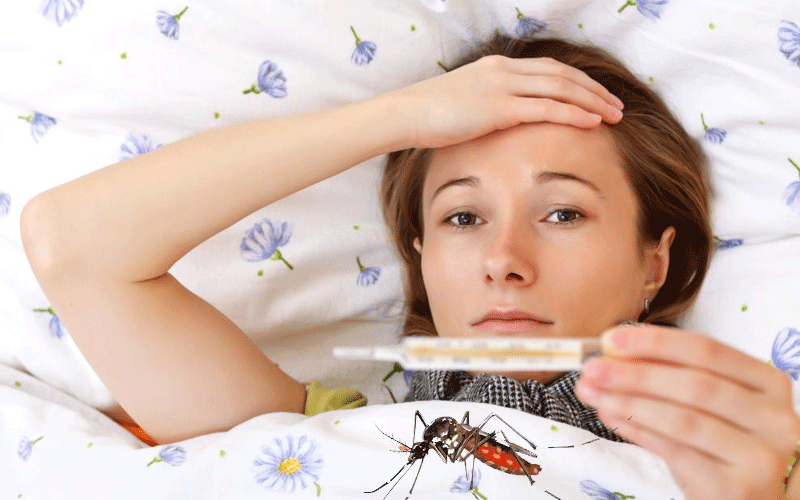Dengue is a common disease, which is easily preventable, but in the absence of information thousands of people fall into it every year. For this reason, the Ministry of Health and Family Welfare, Government of India decided to celebrate on 16th May as National Dengue Day. Its aim is to spread awareness among people about dengue and to take initiatives to prevent dengue. Dengue is a viral disease that spreads through mosquito bites. Normal fever of dengue can be treated slightly and treated with caution, but sometimes the fever of dengue reaches dangerous levels. Dengue HammerHive Fever and Dengue Shock Syndrome are considered as severe or dengue. If this type of dengue is not treated at the right time, then the patient’s life can go.
Severe dengue can occur both in children and older adults, but generally it is more prone to risk. Severe dengue patients can be saved by the right treatment at the right time.
Symptoms of Severe Dengue
Prior to the introduction of severe dengue, the general symptoms of dengue appear in the patient such as fever, acute headache, pain in the joints and body, loss of appetite, dizziness, red-pink rashes on the skin, and lack of platelets in the body etc. Dengue is confirmed even after examining the patient’s blood during this period.
But after 3 to 7 days, symptoms of severe dengue are started in the patient. The most common symptom of severe dengue is the cooling of the body (temperature below 38 degrees Celsius). Apart from this, the other symptoms of severe dengue are as follows.
- Terrible pain in the stomach
- Breezing
- Quick vomiting
- Bleed with vomiting
- Water in the body
- Bleeding gum and nose
- Liver bloating
- Platelets fall rapidly
- Slackness and restlessness
When these symptoms of severe dengue are visible, contact the physician as soon as possible.
Why Severe Dengue is Dangerous?
Severe dengue is dangerous because it starts bleeding from many parts of the patient’s body and through this blood the blood plasma starts coming out of the body. Severe dengue fever can also damage the liver, lungs and even the heart. In many cases the patient’s blood pressure becomes so low that he dies. Other symptoms of severe dengue are as follows.
- Appearing blood in place in the skin or due to blood deposited in the skin, due to large red-pink rashes
- Bleeding with urine and stool
- Plasma out of body with blood
- Difficulty breathing and start breathing
- Liver, heart or other vital organs of the body may develop rapid changes or swelling
- The condition of the patient’s brain condition worsened and it started moving like crazy
In addition to these symptoms of severe dengue, the number of platelets that fall in the body of the patients too rapidly, their body parts can stop working and they may die.
What is the treatment of severe dengue?
Rescue from dengue is the only treatment. By resting normal dengue, taking a lot of fluid and keeping cleanliness around you can be easily corrected. But no cure for severe dengue has been discovered yet. Usually patients of severe dengue can be admitted to the ICU if they meet the doctor at the earliest, then the patient is likely to survive. These treatments are given to the patient during treatment.
- Plating blood and platelets
- Flooding with nerves to meet the shortage of water in the body
- If the patient has trouble breathing, then give oxygen therapy
How to prevent from Dengue?
- To avoid dengue it is very necessary to avoid mosquitoes that cause dengue viruses.
-
In a place where the dengue is spreading, the water should not be allowed to freeze, such as plastic bags, cans, pots, roads or deposited water in the cooler.
-
Every possible effort should be made to avoid mosquitoes such as mosquito nets, wearing full sleeves clothes etc.
- If you are going to a new place in the changing season, then use the products to avoid mosquitoes.
- If there is a world-wide look around you, take special care of cleaning there.
- Make every effort to prevent mosquito breeding.
- If you have fever for more than 5 days, take a blood test. To avoid dengue, avoid mosquitoes.
Keep in mind that dengue mosquito bites only during the day, so save you from mosquitoes in the day, add mosquito-resistant creams and wear full sleeves clothes. Especially during the rainy season, wear shoes instead of full-handed earnings and slippers. Clean the water in the house for the coolers, pots and sandwiches kept for water. Put larval fish in the pits around your house. These fishes are available free of charge in the Malaria office. Cover the water tanks well in the house.

